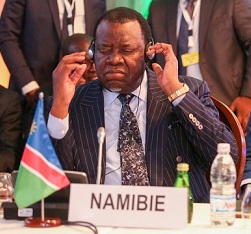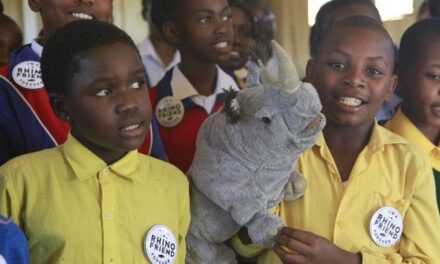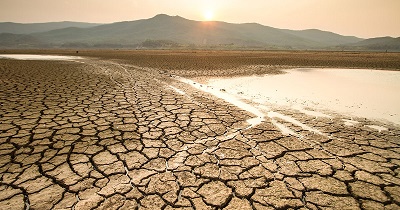
Desertification is a serious concern for Namibia – Geingob

Namibia still has huge responsibilities to promote policies that focus on combatting desertification as the country remains the most arid sub-Saharan countries, the President, HE Dr Hage Geingob said this week at the 15th Session of the United Nations Convention to Combat Desertification (COP15) in Côte d’Ivoire.
Geingob said this responsibility can be met through the promotion of Land Degradation Neutrality (LDN) targets as part of the country’s sustainable agriculture and food security strategy. About 92% of Namibia’s landmass is considered semi-arid, arid or hyper-arid.
According to Geingob, the country experienced at least 12 years of drought since Independence in 1990, while during the same period, half of the country received below-average rainfall.
“During these years, a large number of farmers lost their livestock and experienced poor crop harvests. In some instances, droughts are followed by floods, compromising food security and the livelihoods of farming communities. Therefore, land degradation and desertification, which are further compounded by Climate Change, are a matter of serious concern to us,” Geingob said.
Currently, Geingob said, the government is in the final phase of implementing the country’s 3rd National Action Programme to Combat Desertification, Land Degradation and Drought (2014-2024).
This programme further underscores the government’s commitment to integrating sustainable land management into national development priorities. The 3rd National Action Programme (NAP3) recognizes that Desertification, Land Degradation and Drought (DLDD) are significant threats to inclusive and equitable socio-economic development.
“The most alarming effects of land degradation including deforestation, the diminishing availability of flora and perennial grasses, soil erosion, water scarcity and bush encroachment, undermine the functional integrity of our dryland ecosystems. Therefore, the focus of the 3rd National Action Programme seeks to address DLDD holistically, based on our national priorities and unique circumstances,” Geingob stressed.
The programme also promotes a more synergetic approach to sustainable land management, water management, climate change adaptation, conservation and sustainable use of biodiversity, all of which are closely linked in the Namibian context.
The objectives and desired outcomes of the 3rd National Action Programme are closely aligned with the strategic and operational objectives of the United Nations Convention to Combat Desertification (UNCCD).
“Building on the foundations laid by earlier national action programmes, as well as ongoing good practices in the area of sustainable land management, the Government set up structures and measures in Ministries involved with sustainable land management to assist in combatting and minimizing the impacts of drought. In this regard, our National Drought Scheme Programme assists livestock and crop farmers with the provision of marketing incentives, fodder; free seeds, fertilizers; and water to affected and vulnerable communities,” the President added.












































